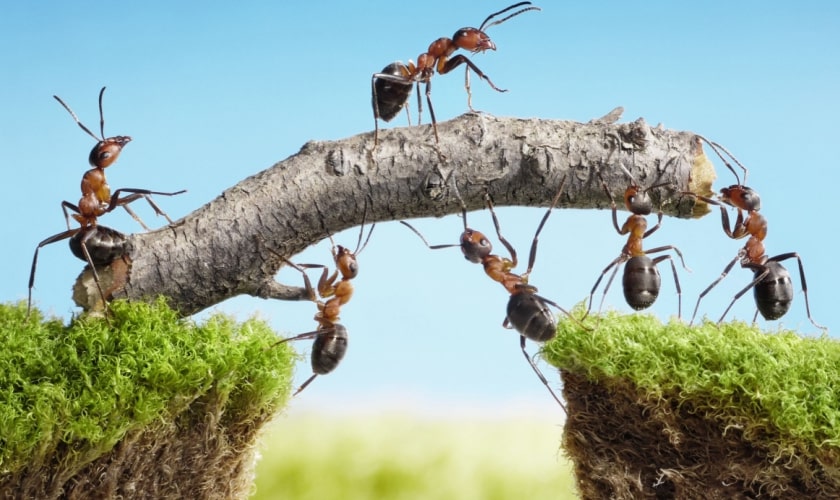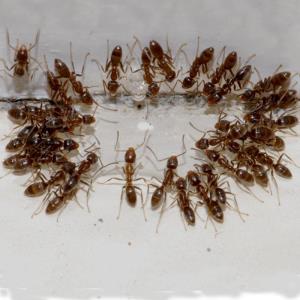Comprehensive Termite Control: Secure Your Home with Professional Services
Comprehensive Termite Control: Secure Your Home with Professional Services
Blog Article
Environmental Influence of Bug Control: Harmonizing Effectiveness With Sustainability
The ecological effect of pest control is an important issue that requires a delicate balance in between achieving effectiveness in taking care of pests and making sure sustainability of our ecological communities. As we strive to secure our crops, homes, and wellness from the dangers presented by pests, the approaches we employ can inadvertently hurt the atmosphere. From using hazardous chemicals that leak right into our dirt and water to the unintentional repercussions on non-target types, the effects of standard parasite control methods are significant. There are arising methods that supply hope for a more lasting approach to pest administration. These remedies not just objective to attend to the immediate bug issues yet additionally take into consideration the long-lasting health and wellness of our earth.
Dangerous Chemicals in Pest Control
The use of harmful chemicals in pest control presents considerable ecological and wellness dangers that require mindful factor to consider and reduction methods. Herbicides, pesticides, and pesticides are commonly used to remove insects, yet their widespread application can cause unintentional consequences. These chemicals can contaminate dirt, water resources, and the air, impacting not only the targeted insects however also beneficial insects, wild animals, and humans.

To deal with these risks, incorporated bug administration (IPM) strategies are being advertised as a much more lasting choice. IPM entails a mix of techniques such as organic control, environment adjustment, and the targeted use chemicals as a last option (ant control gastonia nc). By embracing an alternative approach to pest control, we can reduce the environmental and health influences linked with hazardous chemicals while properly handling pest populaces
Influence On Non-Target Species
Thinking about the unplanned repercussions of insect control techniques, the effect on non-target species is a crucial aspect that calls for thorough analysis. While pest control steps intend to target details insects, various other organisms in the ecosystem may be accidentally influenced. Non-target varieties, including helpful bugs, birds, animals, and also plants, can endure straight or indirect harm from chemical applications or biological control methods.
Pesticides can have sub-lethal or lethal impacts on non-target varieties. Pesticides designed to battle a particular bug pest might hurt pollinators like or all-natural predators such as ladybugs. In addition, chemical deposits can build up in the atmosphere, influencing non-target organisms gradually. Biological control representatives, if not species-specific, can pose threats to unintentional targets, interrupting the environmental balance.
To alleviate the effect on non-target types, integrated pest administration (IPM) techniques that stress an all natural method to pest control are recommended. These techniques prioritize making use of eco pleasant techniques, decreasing harm to helpful microorganisms while effectively taking care of pest populations. Performing extensive danger analyses and keeping track of the end results of pest control efforts are crucial action in securing non-target types and promoting overall ecological community wellness.
Dirt and Water Contamination
Unintentional environmental consequences of pest control techniques prolong past affecting non-target varieties, with significant ramifications for dirt and water contamination. Pesticides, herbicides, and chemical plant foods made use of in pest control can seep into the soil and contaminate groundwater, posing a risk to both marine and earthbound communities. Soil contamination can interfere with the balance of microbes crucial for nutrient cycling and plant development, bring about reduced soil fertility and performance. Furthermore, these chemicals can continue in the setting for extensive durations, gathering in the soil and possibly getting in the food cycle.
Water contamination is another vital problem linked with pest control methods. To minimize dirt and water contamination from parasite control activities, integrated insect management methods that focus on sustainability and minimize chemical inputs are important.
Air Contamination From Chemical Usage
Exposure to air-borne pesticides during agricultural applications presents a significant issue for air pollution control actions. In addition, chemical drift, where pesticides are brought by the wind to unplanned locations, can lead to the contamination of nearby environments and water bodies.

Approaches for Lasting Bug Control
In the realm of agricultural methods, implementing sustainable pest control approaches is vital for preserving ecological balance and guarding crop yields. Lasting insect control stresses the use of eco-friendly approaches to handle bug populations effectively while decreasing harm to non-target organisms and ecosystems. Integrated Pest Management (IPM) is a commonly adopted technique that combines organic, social, physical, and chemical control methods to accomplish long-term pest management options.
Crop turning and diversification are also efficient methods to interfere with pest life cycles and produce much less beneficial problems for bugs to thrive. Ultimately, by integrating these sustainable parasite control approaches, farmers can attain an equilibrium between pest administration efficiency and environmental stewardship.
Conclusion
To conclude, the ecological impact of parasite control techniques should be thoroughly taken into consideration to balance effectiveness with sustainability. Dangerous chemicals utilized in parasite control can lead to dirt and water contamination, air contamination, and injury non-target species - ant control. It is essential to carry out lasting parasite control methods to reduce these negative effects on the setting and advertise a much healthier ecosystem for future generations
By taking on an all natural technique to pest control, we can lessen the environmental and health effects associated with hazardous chemicals while effectively managing pest populations.

To reduce the air pollution triggered by chemical usage, it is necessary visit this site to take on integrated bug management techniques that prioritize the usage of non-chemical parasite control approaches, such as plant turning, all-natural predators, and resistant crop ranges. Lasting pest control emphasizes the use of ecologically friendly techniques to handle parasite populations effectively while lessening damage to non-target microorganisms and ecological communities. Integrated Pest Administration (IPM) is an extensively taken on technique that combines organic, social, physical, and chemical control methods to achieve long-term pest management solutions.
Report this page